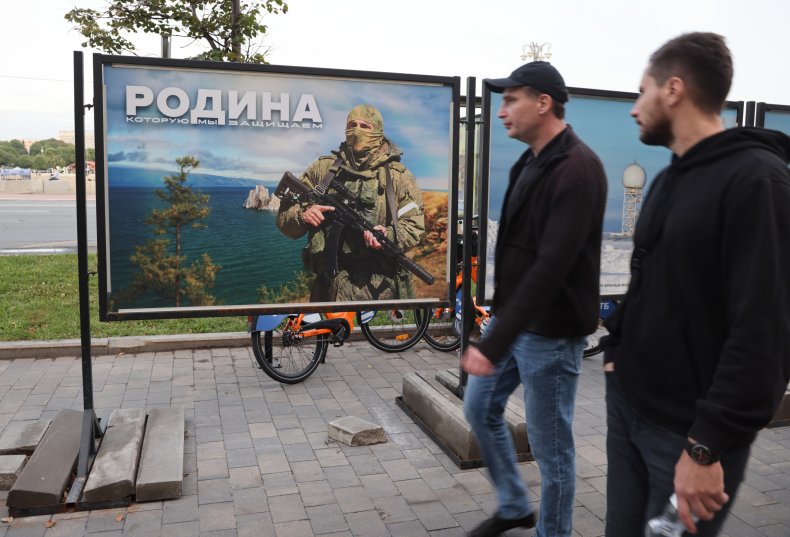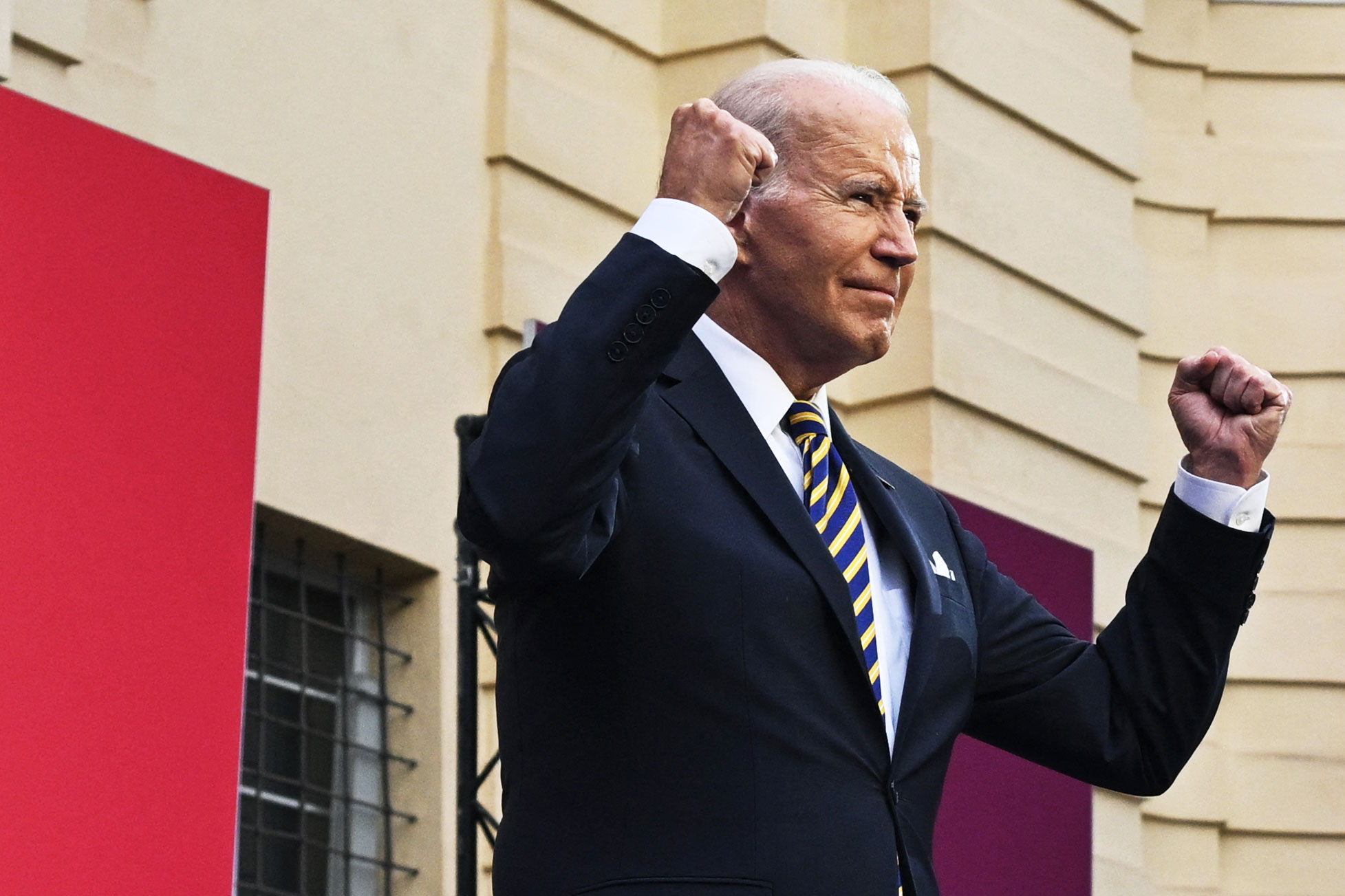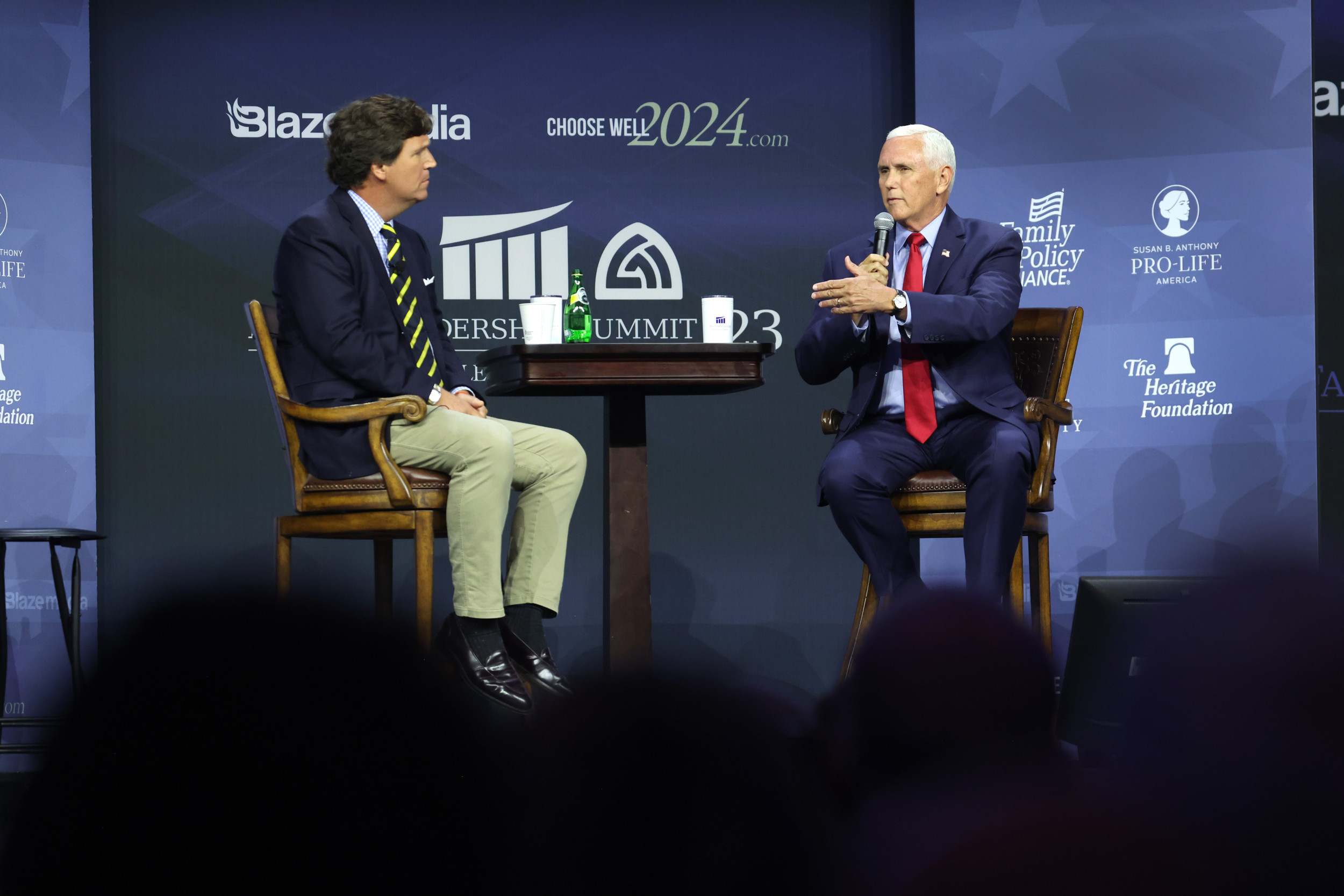Ukraine faces a closing window of opportunity to avoid a "forever war" with Russia, an American special forces veteran now training Kyiv's troops has told Newsweek as Ukrainian soldiers press the ongoing counteroffensive in the south and east of the country.
Erik Kramer, the director and co-founder of the Kyiv-based Ukraine Defense Support Group (UDSG), said in an interview from Kyiv that Moscow's forces are well entrenched in the 20 percent of Ukrainian territory they still occupy, and that ejecting them will be a long and costly project for Ukraine's troops.
"It's going to be one of those forever wars," Kramer—who served the U.S. military for 26 years in locations including Afghanistan, Bosnia, Congo, Iraq, and Kosovo—said.
"The Russians have had months, if not years, to develop defense in depth. And the same things that were working against the Russian army—whether it's logistic lines, or logistic hubs, or these directed fires from the Ukrainians—also work against the Ukrainians when they're on the offense."
"I do think there will be some success. But again, I think the lines will stabilize and you're going to have this low-boil forever war with lines just like they were close to 2014," Kramer added, referring to the frozen conflict that settled over the eastern Donbas region following Moscow's 2014 invasion of the Crimean peninsula.
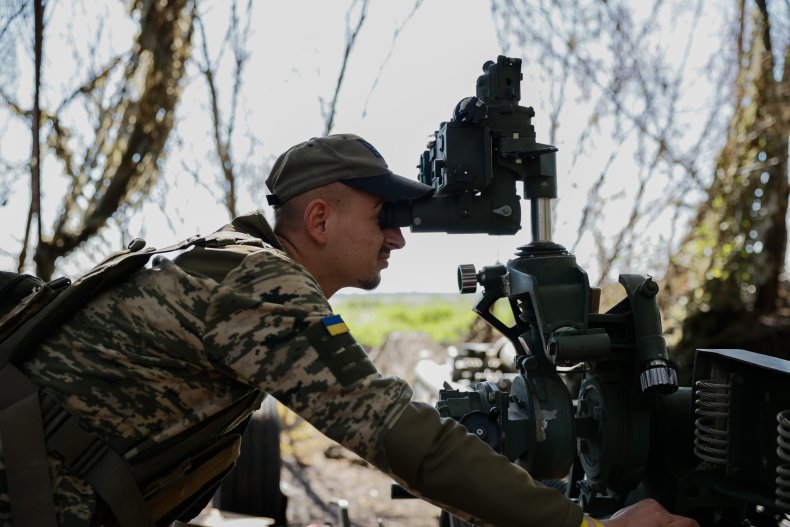
"You always have to look at logistics and political will," the veteran added. "You can already see that the amount of stuff the West has given to Ukraine is depleting the West's ability to maintain a ready posture. I see it getting worse as the year goes on. I think less and less will be coming in."
At the July 11-12 NATO summit, Czech President Petr Pavel said Kyiv's "window of opportunity" to liberate land may close by the end of 2023, as worse weather and political conditions combine to increase pressure for negotiations with Moscow.
"I agree with the statement that it's this year or never," Kramer said.
Hesitancy and Trepidation
Ukraine's counteroffensive began in early June and has progressed slowly, though Kyiv says it has liberated eight settlements and more than 80 square miles of territory. Newsweek has contacted the Russian Defense Ministry by email to request comment.
President Volodymyr Zelensky has acknowledged that the operation is "not fast," and he and his top officials and generals have urged patience.
Zelensky has also said Kyiv will not be pressured into action. "Some people believe this is a Hollywood movie and expect results now. It's not," the president told the BBC in June. "What's at stake is people's lives."
Kramer—who along with his UDSG group of 10 to 15 volunteer trainers has instructed thousands of Ukrainian personnel from almost every part of the country's armed forces—said he fears Ukrainian "hesitancy" and "trepidation" around personnel and equipment losses.
"They're probing, but I think that's all you're going to see, except for one or two exceptions of some breakthroughs," he explained.
"They're hyperaware that people in the West are looking at them when it comes to equipment; are they being good stewards of the equipment? In the West, what we're worried about is corruption. They're translating that into battlefield success or battlefield loss. They don't want to have videos of Bradley fighting vehicles, Leopard tanks, and Challengers being blown up."
Videos of destroyed U.S.-made Bradleys and German Leopard 2 tanks from earlier in the counteroffensive were particularly embarrassing for Kyiv, even if the footage—gleefully reported on by Russian state-aligned media—only reflected one engagement on a small portion of the front.
The videos, Kramer said, showed that the vehicles went "into a minefield with repeated poor tactics and not using all the elements of combined arms effectively. Why would you go into a minefield without having engineers ahead of you? Or why wouldn't you have fires firing into the minefield? It's just so many things they're not quite doing right."
"I think politically, the Ukrainians have to use everything they've got in the counteroffensive," Kramer added. "Otherwise, they're going to lose support."
Offensive operations are often punishing, and initial reports suggest that Ukrainian casualties are increasing, though officials in Kyiv maintain that they are inflicting multiple orders of magnitude more on the Russians. Neither side releases up-to-date casualty figures.
"There's a lot of casualties," Kramer said. "I've got some of my guys working a casualty collection point. And I don't want to say numbers, because it's all just anecdotal, but they're seeing triple the amount of casualties they saw a few months ago. It's pretty horrific."

"The state of Ukraine is not in any danger of collapsing. But I don't see much changing with the battlefield situation or political situation within the next year."
"The best I can hope for, in my opinion, is you have this boiling war going on for the next five-plus years," Kramer said. "But during that time, they're able to build up their capacity to defend themselves with less Western aid."
"I don't think they'll ever completely stand up on their own, but they're going to have to be able to do more on their own because the support from the West is going to get less and less. Otherwise, we're gonna keep seeing this repetition of Russian attacks indefinitely."
'Islands of Excellence'
Kramer acknowledged that the fog of war makes it difficult to fully evaluate the Ukrainian counteroffensive. Retired Lieutenant Colonel Ben Hodges—with whom Kramer previously worked—told Newsweek in June that initial reports of Kyiv's counteroffensive failures were "nonsense."
Kramer described himself as "an optimistic pessimist," noting there are "islands of excellence, islands of hope that I still see with the Ukrainian military. With the fog of war, you never know where there can possibly be a breakthrough and where there's just such a huge weak point in the Russian lines."
"What I think's going to happen is there'll be some breakthroughs, but once the initiative gets lost and the days turn into weeks, into a month, I think people are just going to turn into 'plants.' That's what usually happens, guys just get complacent or [feel that] where they're sitting is safer."
Kyiv and its Western backers will be hoping that gradual probing operations give way to at least one significant breakthrough. That will be the moment that the rest of Ukraine's new NATO-trained formations equipped with Western heavy armor would be expected to be thrown into the fight.
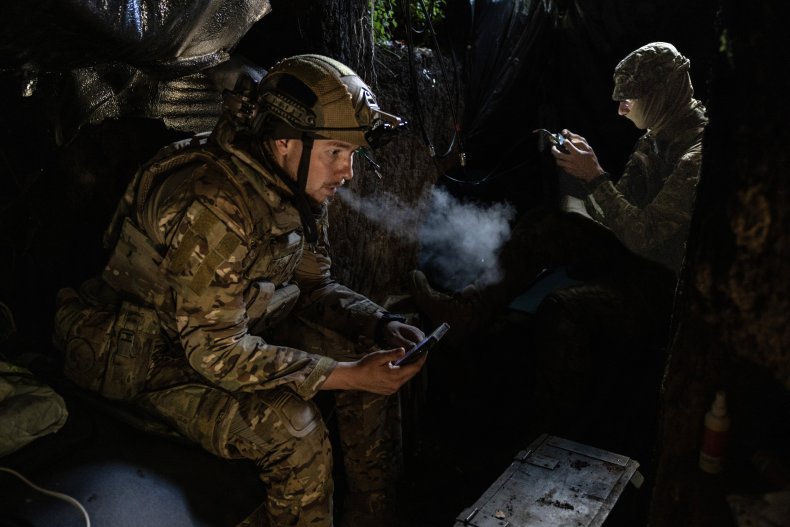
But Kramer said even Ukraine's best-trained units would have to grapple with similar logistical problems as have hampered Moscow's invasion forces.
"The Ukrainians, their logistics are still very ad hoc," he said. "They rely a lot on their own rail systems too. So even if there is a breakthrough, the ability to push enough troops, reserve forces, and artillery forward is just not quite there."
One scenario for a Ukrainian breakthrough would take place on the southern front between the cities of Zaporizhzhia and occupied Melitopol. Success on this axis might imperil Moscow's land corridor to Crimea, which stands as one of Moscow's major achievements from nearly 18 months of full-scale war. Isolating the occupied peninsula is a key goal for Ukraine.
But Kramer urged caution. "I think it's way optimistic," he said of a potential Ukrainian advance to the gates of Crimea. "That's a long way to go and you've got to do a river crossing," he added, referring to the required assault across the Dnieper River—called the Dnipro in Ukrainian—which separates Russian and Ukrainian forces in the southwest.
"River crossings are extremely complex, manpower intensive, equipment intensive, and technical," he said. "They get across the river first and then they've got to fight their way through kilometers and kilometers of fortifications...I don't see Crimea being reached within this year."
Still, when the smoke of the counteroffensive clears, the strategic picture may look different. This might prove especially true in the case of more internal Russian turmoil.
"The thing about wars and the fog of war is that you never know what can happen," Kramer said. "Who would have suspected [Wagner boss] Yevgeny Prigozhin would have tried some sort of coup? Who would have thought that they would actually capture a town? There's always that uncertainty in war."
